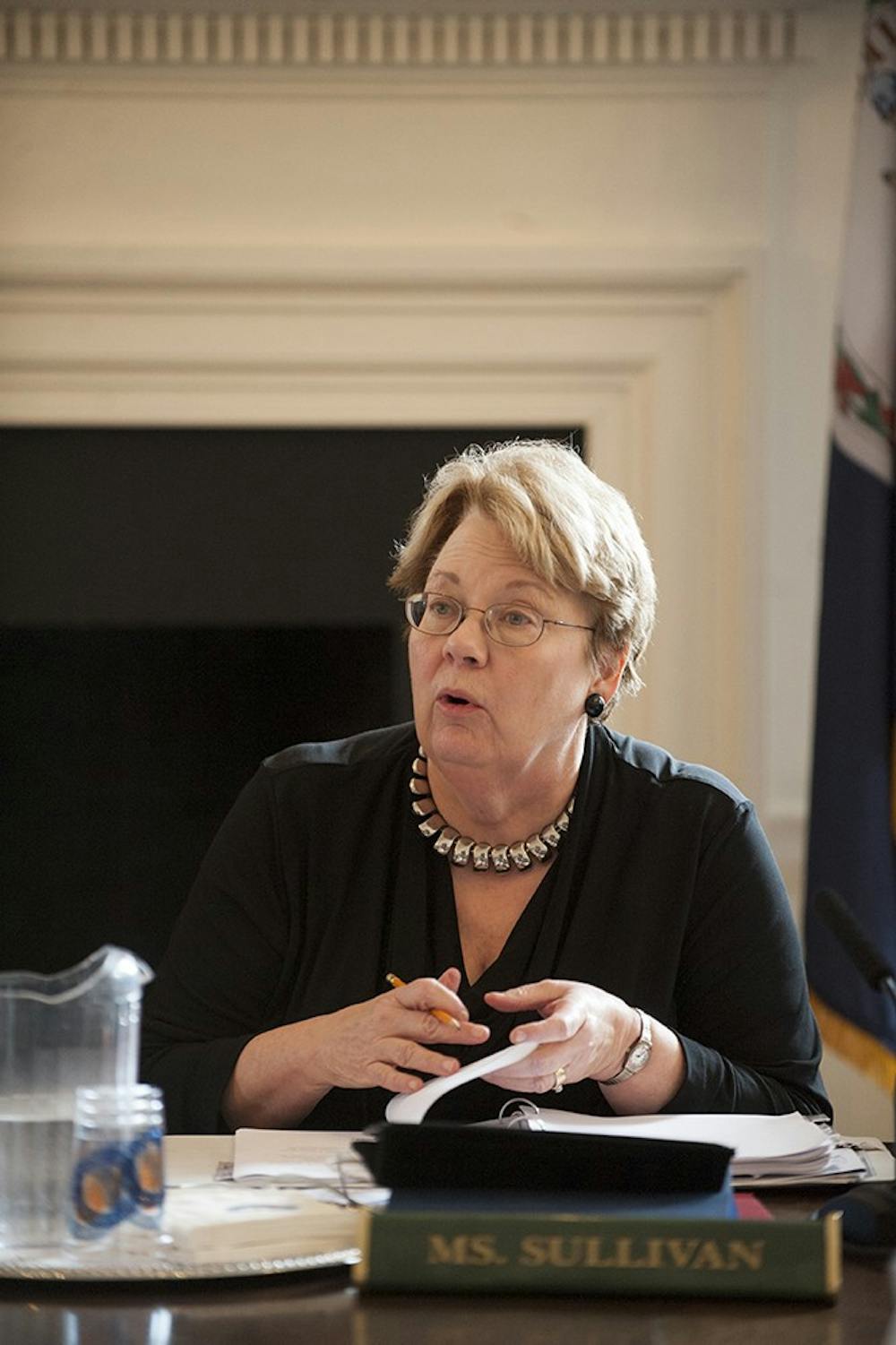Monday, University President Teresa Sullivan published a response to a letter asking her to stop using Thomas Jefferson as a “moral compass” for the University community.
Sullivan said she understands the potency of words and the need for inclusion at the University, but did not say she would stop quoting Jefferson in official communications — quoting him again in her response.
Asst. Psychology Prof. Noelle Hurd drafted and circulated the letter last week in response to Sullivan’s inclusion of a Jefferson quote in a University-wide regarding the presidential election. The letter was signed by 469 University faculty members and students.
Sullivan’s response began by acknowledging the right of those within the University community to express their thoughts.
“I fully endorse their right to speak out on issues that matter to all of us, including the University’s complicated Jeffersonian legacy,” Sullivan said.
Still, Sullivan reinforced her belief in Jefferson’s message regarding University students’ potential to lead in America.
“Quoting Jefferson — or any historical figure — does not imply an endorsement of all the social structures and beliefs of his time,” she said.
Referring to Jefferson’s famous quote “all men are created equal,” Sullivan added, “Those words were inherently contradictory in an era of slavery, but because of their power, they became the fundamental expression of a more genuine equality today.”
Responses to Sullivan’s response were mixed, both from signatories of the letter and alumni of the University.
Hurd said she was pleased that Sullivan acknowledged the community’s right to discuss issues surrounding Jefferson’s complex legacy.
“We sent the email to raise awareness that references to Jefferson's actions and words in emails that were intended to motivate campus unity undermined the message the administration was attempting to convey,” Hurd said in an email statement. “I know that this collective email has spawned many important conversations within our University, and I fully expect that these conversations will continue.”
Hurd also said she believes the University must work to present a more nuanced picture of Jefferson in the future.
“The tradition of invoking Jefferson in a manner that deifies him needs to evolve to one where our community engages in collective dialogue about the true history of Jefferson and this institution,” Hurd said. “In this way, we will ensure that the best and the brightest students from all backgrounds benefit from what this university has to offer.”
While Hurd appreciated Sullivan’s response and its effort to spark conversation in the community, Brian Cameron, a second-year College student who signed the letter, said Sullivan’s response did not add anything substantive to the conversation.
“She says that word have power, but I have a really hard time believing that anyone who understands that doesn’t also understand how symbols also have power,” Cameron said.
While some may regard Jefferson as representative of freedom and democracy, to others, he is a figure a that represents racism, slave ownership and sexual assault, Cameron said.
“Myself and a lot of my fellow community members in the U.Va. community think that’s a really inappropriate symbol to invoke in a moment where our president who just got elected is also a symbol that invokes racism and sexual assault and xenophobia,” Cameron said.
Black Student Alliance President Bryanna Miller, a third-year College student, said instead of galvanizing the University community, this instance of quoting Jefferson only deepened its divisions.
“I would hope that moving forward the University considers limiting the use of Jefferson quotes overall, but particularly as it relates to bias-related incidents, minority concerns and other situations, including sexual assault, in which Jefferson's legacy stands in conflict with the message that is being conveyed,” Miller said in an email statement.
Although some in the University community were not completely satisfied by Sullivan’s response, several University alumni started a petition on change.org to protect Jefferson’s legacy.
The petition reads, “We reject any and all calls to erase or diminish Jefferson's legacy at the University of Virginia in the name of political correctness, and we encourage President Teresa Sullivan and the Board of Visitors not to bow to such demands.”
John Sweeney, a 2009 Commerce School alumnus, started the petition.
“Too often, the most controversial position is heard the loudest while the rest of us simply look on helplessly and hope that cooler heads will prevail,” Sweeney said in an email statement. “There are many people — I would say a substantial majority — who disagree with the views of the students and faculty who penned this letter to President Sullivan. That majority deserves to be heard, and this petition gives them an opportunity to do that.”
Sweeney said while he appreciated Sullivan’s response, he hopes to go further in protecting Jefferson’s legacy.
“Thomas Jefferson, despite his many faults, is still a beloved figure who many U.Va. alumni and students turn to for wisdom and guidance throughout our academic and professional lives,” Sweeney said. “By submitting this petition, we are sending a strong message to those who would censor Jefferson's legacy that the vast majority of the U.Va. community will oppose such action at every turn.”
As of press time, the petition had more than 430 signatures. Sullivan has not publicly commented on it.







